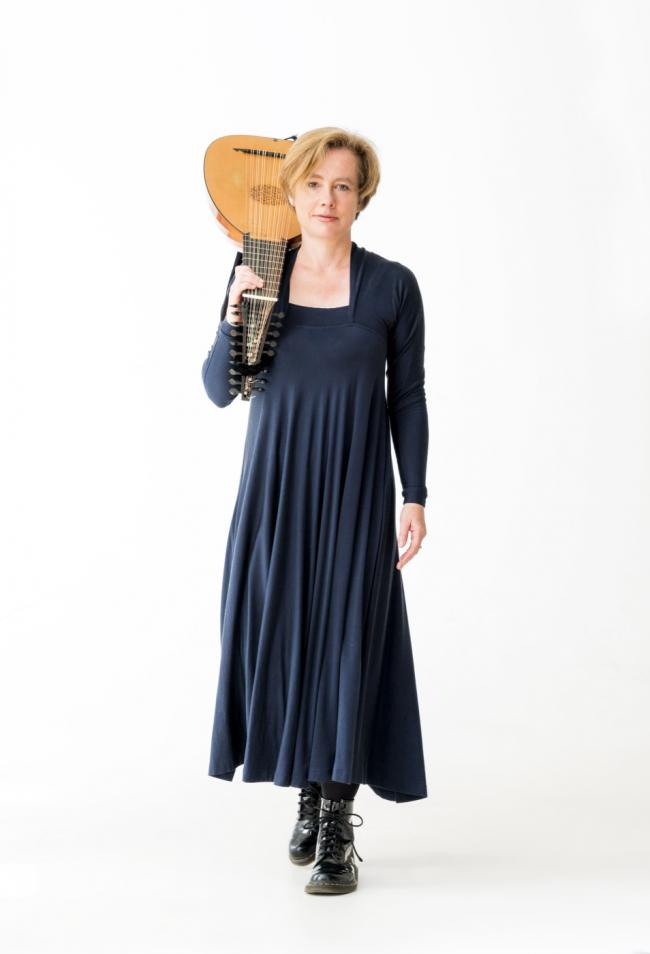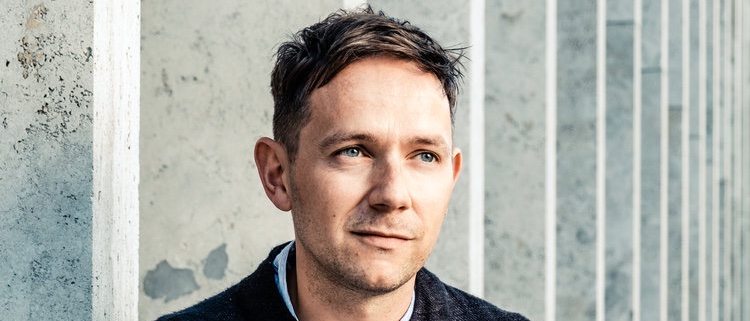
YORK countertenor Iestyn Davies should have been performing Bach: Countertenor Arias with Scottish instrumentalists the Dunedin Consort next Wednesday at the 2020 York Early Music Festival.
Instead, in a revised, streamlined, online version of the event now running from July 9 to 11, Iestyn switches from the Sir Jack Lyons Concert Hall to the National Centre for Early Music for a socially distanced concert with lutenist Elizabeth Kenny, streamed from an otherwise empty St Margaret’s Church, Walmgate, at 7.30pm next Thursday. Empty save for technical manager Ben Pugh recording the performance from across the floor.
“When Delma [festival administrative director Dr Delma Tomlin] got in touch, initially she wondered, ‘Could you still do the concert with the Dunedin?’, but they’re based in Scotland and we couldn’t have the whole consort down here under lockdown rules, so we decided that I’d rather re-schedule that concert,” says Iestyn.
“But I said, ‘look, I’m already doing a concert with Liz at Wigmore Hall, we could do one at the NCEM too, where I could do the readings as well as sing and we can have the building to ourselves for the day’.”
Consequently, Davies and Kenny, a former artistic adviser to the York Early Music Festival and frequent performer at the NCEM, will present A Delightful Thing, Music and Readings from a Melancholy Man, wherein the music of Elizabethan lutenist John Dowland will be complemented by Davies’s renditions and readings of poetry by Robert Burton, Michael Drayton, Rose Tremain, Leo Tolstoy and Dowland himself. Kenny will play theorbo.
“Dowland is known for his music of extraordinary misery but utter beauty,” says Delma Tomlin. “He knew that in love, the only thing sweeter than happiness was sorrow. Few living interpreters understand his music more profoundly than Iestyn, who has devised this evening of poetry, music and drama for voice and lute to explore a composer for whom a single teardrop can hold a universe of emotion.”
Davies and Kenny’s Wigmore Hall concert was broadcast live from London on BBC Radio 3 on June 22, drawing 750,000 listeners to their 1pm performance of works by Purcell, Dowland, Campion, Johnson, Mozart and Schubert.

“Phew, it’s over,” Tweeted Iestyn immediately after the Lunchtime Concert, one of a series of 20 recitals presented in the stillness of a Wigmore Hall devoid of an audience every weekday in June as part of BBC Arts’ Culture in Quarantine initiative.
“It was an absolute joy,” says Iestyn, of his first concert performance since performing to a packed Metropolitan Opera at the Lincoln Center in New York City on March 7.
“But what was strange was that it felt like taking an exam. We did the rehearsal in the hall the day before, and you think, ‘it’s not going to change that much’, but Martin [presenter Martin Handley] was seated at a desk like an examiner, and there was just the hush of an audience listening on their radios, where normally there’s applause.
“The great thing about live music is that it’s ephemeral, you perform, then it’s over, and people remember it differently afterwards even though they were together. But this was more of an exam experience, where you have to wait for your results, and the only way you can tell how you did is in the reviews…though two people I know in York said straightaway they enjoyed it!”
Marking his 40th birthday on September 16 last year, Iestyn was only one concert into a four-concert residency at Wigmore Hall when Covid-19 intervened, but he was delighted to take up the invitation to partake in the season of BBC Radio 3 recitals, each featuring a singer and a musician, all from Britain.
“My regular recital partner, [French lutenist] Thomas Dunford, lives in Paris, so that ruled him out, but Liz and I have performed regularly together before, and she’s one of those wonderful multi-strings-to-her-bow musicians, what with her being director of performance at the University of Oxford and professor of Lute at the Royal Academy of Music,” says Iestyn.

New York in March, then silence, before the Davies-Kenny concerts this summer. “What’s been wonderful in lockdown has been there’s been no fear of missing out,” says Iestyn. “I also learnt that it’s good to give your voice a rest for three months.”
Rested…and now that pure, pure voice is in fine working order again: “Like getting back on a bike, or going back to the gym, it all starts to flow, though they say it’s one day’s work for every week you have off, but generally I try to pace things out anyway,’” says Iestyn. “When you’re busy with work, you press ‘Start’ and you know how to run the engine.”
Before the Wigmore Hall concert, he was able to “get back into the swing of singing” when recording 20 Schubert songs over four of five days in Suffolk, “singing carefully” five to six hours a day.
Iestyn may be happy to be performing once more, but he is perturbed by the Covid cloud hanging heavily over the performing arts world, the alarm bell clanging ever louder with the rise of the Let The Music Play campaign amid the calls for urgent financial support for venues and artists alike.
“No-one chose this situation, so it shouldn’t be about a popular vote, but Boris Johnson and [Culture Secretary] Oliver Dowden are playing to the gallery, the Prime Minister trying to win points by saying you can go to the pub,” says Iestyn.
“What they’ve done to the arts is devolve responsibility both financially and philosophically, and of course it doesn’t help that some people think of the arts the way they do.”
Before it is too late, you can play your part in supporting the arts by buying tickets for the online York Early Music Festival at tickets.ncem.co.uk and boxoffice@ncem.co.uk, with a festival package at £30, individual concert tickets at £10 each and illustrated talks at £3.50 each. Access to the festival events is via ncem.co.uk, where full details of the July 9 to 11 programme can be found too.
